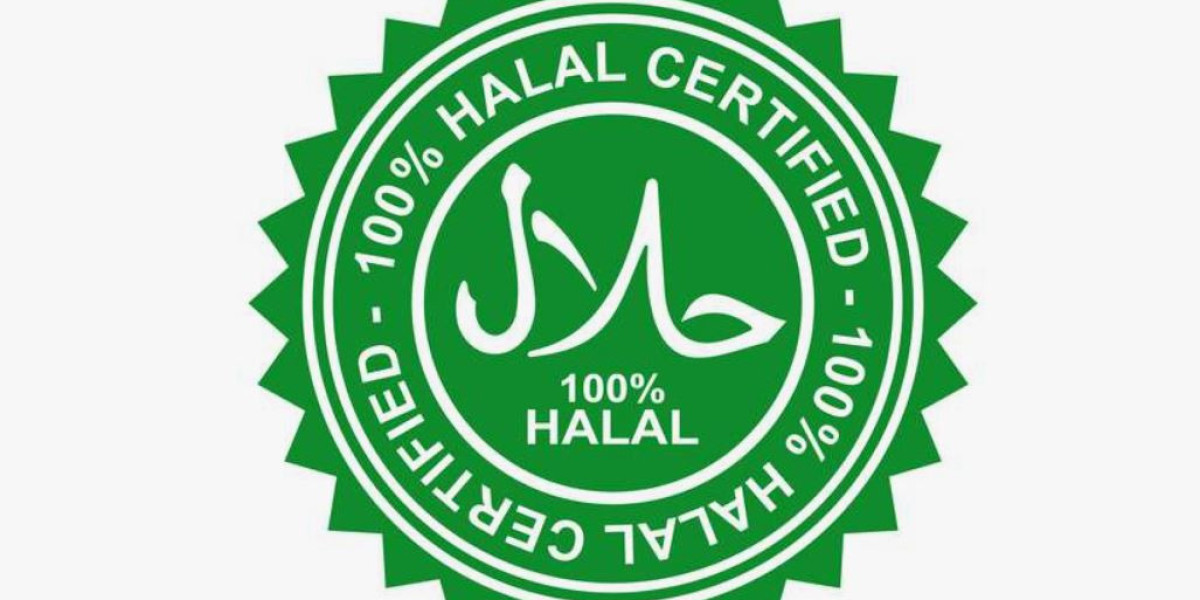Halal certification plays a crucial role in ensuring that products and services comply with Islamic laws and are permissible for Muslim consumption. The term "halal" originates from Arabic, meaning "lawful" or "permitted." In a world where consumer awareness is growing rapidly, particularly among Muslim communities, halal certification has become a mark of quality, hygiene, and ethical compliance. Businesses around the world are actively seeking halal certification to tap into the expanding global halal market, which is not just limited to food but extends to cosmetics, pharmaceuticals, logistics, and even finance. This certification acts as a symbol of trust, giving consumers confidence that the product meets Islamic requirements.
Importance of Halal Certification for Businesses
For any business looking to cater to Muslim consumers, halal certification is no longer an option—it’s a necessity. Obtaining halal certification gives companies a competitive edge in both local and international markets. In countries with a significant Muslim population, such as Indonesia, Malaysia, the UAE, and Pakistan, halal certification is often mandatory for selling food and beverage items. Beyond compliance, the certification allows brands to demonstrate respect for cultural and religious values, thereby boosting consumer loyalty and trust. It opens the door to participate in halal trade fairs, online platforms, and export opportunities, helping brands expand their global footprint. For startups and SMEs, acquiring halal certification can be the gateway to accessing new customer bases and partnerships.
Types of Products and Services That Require Halal Certification
Halal certification is not limited to just food items. It covers a broad spectrum of products and services. In the food industry, this includes meat, dairy, beverages, snacks, and restaurant services. For meat products, halal certification ensures that the animal was slaughtered according to Islamic rites, free from any cross-contamination with haram (forbidden) substances. In cosmetics and personal care, halal certification guarantees that the ingredients do not contain alcohol or any derivatives of non-halal animal sources. Similarly, in the pharmaceutical industry, halal-certified medicines and supplements are formulated and processed in a way that complies with Islamic guidelines. Other industries such as hospitality, packaging, and logistics are also turning toward halal certification to cater to Muslim clientele who seek assurance about the ethical handling of products.
The Process of Getting Halal Certification
Obtaining halal certification involves a thorough process, often overseen by recognized halal certification bodies. The first step is submitting an application, detailing the nature of the product or service. After that, a documentation review is conducted where the ingredients, manufacturing processes, and supply chain logistics are analyzed to ensure they meet halal standards. Following the documentation review, an on-site inspection is typically carried out. During this visit, inspectors evaluate hygiene, sanitation practices, and verify the absence of non-halal materials. If the facility meets all halal compliance requirements, a certificate is issued, usually valid for one to three years. The company must also agree to regular audits and surveillance checks during the certification period. This rigorous process ensures continuous compliance and builds trust among consumers.
Benefits of Halal Certification for Consumers
Halal certification is not just beneficial to businesses—it’s equally valuable for consumers. For Muslim consumers, it provides peace of mind that the products they are using or consuming are in accordance with Islamic law. It also reflects quality assurance, as most halal certification bodies enforce high standards of hygiene and safety. Even non-Muslim consumers often prefer halal-certified products due to their cleanliness, ethical sourcing, and absence of harmful substances. In an age where people are becoming increasingly health-conscious and ethically aware, halal-certified products are viewed as safer and more environmentally responsible. Additionally, halal certification encourages transparency in labeling and product information, which empowers consumers to make informed purchasing decisions.
Global Demand and Market Potential of Halal Certification
The demand for halal certification has grown exponentially in recent years. With over 1.9 billion Muslims globally, the halal industry is valued at over USD 2 trillion and is projected to grow steadily. Countries like Malaysia, Saudi Arabia, and the UAE have established themselves as leaders in halal regulation, offering strong infrastructure for certification and compliance. Meanwhile, non-Muslim majority countries such as the United States, Australia, and Japan are also investing in halal certification to attract Muslim travelers and consumers. The rise of halal tourism, halal e-commerce, and halal finance further expands the market potential for businesses that align with Islamic values. As awareness spreads, more sectors are recognizing the need to adopt halal certification to remain competitive on a global scale.
Common Misconceptions About Halal Certification
There are several misconceptions surrounding halal certification, especially among those unfamiliar with Islamic practices. One common myth is that halal certification is only about religion. While the certification is rooted in religious principles, it also encompasses health, safety, and ethical concerns. Another misconception is that halal certification is an expensive or cumbersome process. In reality, many certification bodies offer affordable services with guidance throughout the process. Some people also believe that halal-certified products are only for Muslims. However, halal products often meet or exceed general quality standards, making them appealing to a broader audience. Dispelling these myths is important to ensure more businesses are open to adopting halal certification.
Challenges Faced in Obtaining Halal Certification
While halal certification offers numerous advantages, the path to obtaining it is not always without challenges. One of the main difficulties businesses face is understanding the specific requirements of different halal certification bodies, which may vary by region or country. Documentation and traceability of ingredients can also be complex, especially for companies with large supply chains or multiple manufacturing locations. Additionally, finding halal-compliant alternatives for certain ingredients may require changes in suppliers or formulations, which can be time-consuming and costly. Despite these hurdles, the long-term benefits of gaining consumer trust and accessing new markets make the effort worthwhile. Partnering with experienced consultants or halal certification experts can significantly ease the process.
Halal Certification and International Trade
Halal certification has a significant impact on international trade, particularly for companies in the food, pharmaceutical, and cosmetics sectors. Many countries require halal certification as a prerequisite for importation of certain products. For example, exporting meat products to the Middle East or Southeast Asia typically requires certification from a recognized halal body. International recognition of halal standards, however, remains fragmented, with different countries accepting certifications from specific bodies. Therefore, businesses must ensure they choose a certification authority that is internationally accepted and aligned with the target export market. Some organizations are working toward harmonizing halal standards globally to streamline trade and reduce regulatory barriers, further highlighting the growing importance of halal certification in cross-border commerce.
Conclusion
Halal certification is a powerful tool for businesses aiming to meet the needs of Muslim consumers while maintaining high standards of quality, hygiene, and ethics. From boosting brand credibility to opening new market opportunities, the certification offers substantial advantages. As the global demand for halal-certified products continues to rise, understanding and embracing this certification becomes essential for long-term success. For those seeking a reliable and professional partner in this journey, halalbureau stands out as a trusted name in the field of halal compliance and certification.



